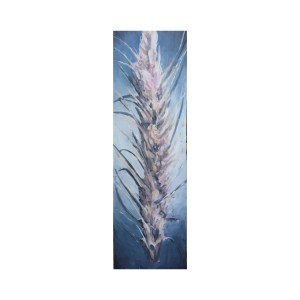Trigger Warning: Sexual violence, assault, and abuse
A woman stumbles out of a bar and the audience cannot be sure whether to laugh or worry—a consistent sensation throughout the tragic dramedy, I May Destroy You. In BBC’s latest masterpiece, writer, co-director, and lead actress Michaela Coel draws on her own trauma to create one of the most honest portrayals of sexual assault to hit the screen. In I May Destroy You, Coel tells a story that centers less on the act of assault itself and more on the psychological spiral that ensues after the event.
The twelve-episode series follows Arabella (Michaela Coel), a young writer who has just published her first bestseller, “Chronicles of a Fed-Up Millenial.” While on a tight deadline from her editors, Arabella takes a break for a few hours and goes to a bar with some friends. After a few drinks, Arabella decides to return to her office to continue writing. She stumbles, falls, and blacks out. When Arabella “blacks in,” she’s sitting at her desk, blood dripping from her forehead, and clutching a severely cracked iPhone. Somehow, she has ended up with enough writing to submit to her editors. How did she get there?
In the haze of the following morning, Arabella has a flashback: a man towers over her, and a heavy thumping sound drowns out the rest of her surroundings, but she has little trust in her own memory. Over the next few episodes, Arabella attempts to piece together the night with the help of her closest friends, Terry (Weruche Opia) and Kwame (Paapa Essiedu).
A tension between understanding the past, surviving the present, and moving toward the future underlies Arabella’s struggle to confront her trauma. Arabella decides to go to the police station before she has fully come to terms with what has happened. As a female officer attempts to get more information, Arabella interjects. “You can’t exactly call it a memory,” she says, and she insists on referring to the event as the “thing in her head.” This is the double-edged sword of memory: the criminal justice system relies on Arabella’s memory and recall to hold the perpetrator accountable, but traumatic memories are not always easy to confront, and confrontation demands that Arabella come to terms with what has happened, whether she feels ready or not.
Coel explores consent from all angles—the series begins with one rape, but the director invites viewers to consider other exploitations related to sex, race, and consent. While making a speech at a conference of young writers, Arabella publicly labels a colleague a rapist after an incident in which he removes a condom without her knowledge. Rather than attempting to answer questions about these topics (it becomes problematic when we look for one-size-fits-all experiences in terms of sexual assault), I May Destroy You provokes them. Did I consent to that? Could I have been a better friend to her? Is this what abuse looks like? Certain scenes will be familiar to many of us. In both her writing and acting, Coel recognizes that everyone’s experiences are different, and invites viewers to explore the feelings associated with trauma along with her.
I May Destroy You offers a candid look into navigating young adulthood. The way Arabella moves through the world is thrillingly chaotic, and unapologetically so—her dynamism is presented without judgment, and never as justification for her assault. This chaos is emblematic of young adulthood, and a reminder that self-exploration is always messy. On top of an incredible soundtrack and powerful acting, each episode delves a bit deeper into the emotional turmoil that follows a traumatic event. With six episodes yet to air, Coel has much more to say (and we have much more to learn) about the emotional process of recovery.
Eliza Farber is pursuing a major in psychology at McGill University, as well as minors in history and communications. Eliza is an aspiring writer. She enjoys exploring life through film, television, music, and literature.
Feature Image: “Identity L” by Giostino Giotezio.
Giostino Giotezio is a director and visual artist wandering through life’s experiences, endlessly searching for Paradise. GioGio’s style can be defined as a mixture influenced by Anime, Nature, Retro Technology and Surrealism. Follow his journey here.




